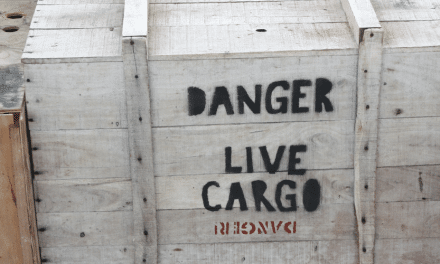By Erin Lanza
During the early part of 2020, environmental and animal advocates turned their attention toward the devastating losses of wildlife in Australia. In a vastly different habitat, irresponsible human activity threatens the lives of seahorses. These animals now face a risk of extinction due to water pollution in coral reefs, mangrove swamps, and sea-grass beds in coastal regions. Indeed, Save Our Seahorses reports that, without vastly improved legal protection, seahorses may become extinct within 20-30 years.
Unlike the Australian fires and other high-profile dangers, seahorse habitats remain largely out of the public eye. Although they may also be favoured creatures in anthropocentric value judgments and sympathies – like koalas and kangaroos – their admired grace and beauty adds to their risk of extinction: They are exploited as novelty items for collectors, for aquariums, and for traditional medicinal practices.
In conjunction with direct human exploitation, which is responsible for the destruction and forced captivity of over 152 million seahorses a year, habitat loss poses a major threat to seahorse populations, a reality perpetuated by continued governmental irresponsibility, most notably in UK Oil Law.
Last year, the Secretary of State for Business, Energy, and Industrial Strategy, Andrea Leadsom MP, granted a license to Corallian Energy Limited through the Offshore Petroleum Regulator for Environmental Decommissioning (‘OPRED’), an organisation ‘responsible for regulating environmental and decommissioning activity for offshore oil and gas operations in the UK’. This license allowed Corallian Energy to install a temporary oil rig off the Dorset coastline in a recognised area for seahorse colonies.
In response to this threat to seahorse habitats, the founder and executive director of the Seahorse Trust, Neil Garrick-Maidment, challenged the Secretary of State’s actions, claiming that objectors to this oil rig were not granted adequate opportunities to urge against this dangerous environmental decision. Indeed, objectors to the action were not directly informed beyond a notice published in the London Gazette. Also, it was argued that the proper steps for granting a license were not followed. The Secretary of State is legally required to carry out both a public consultation and an environmental impact assessment under the EU’s Environmental Impact Assessment Directive. Failing this, the claimant has argued that the drilling application was not subject to a lawful transparent consultation process in compliance with the Directive.
This claim for judicial review was granted permission for a full hearing in 2019. In October 2019, however, the Secretary of State announced that, rather than defend the action, she would review the Offshore Petroleum Production and Pipe-lines (Assessment of Environmental Effects) Regulations 1999 and the working practices of OPRED, and she has publicly acknowledged their need for amendment.
While Corallion Energy’s oil rigging in Dorset may have already harmed seahorse populations in the area, many are hopeful that this case will increase awareness of the importance of stricter regulations. As Susan Ring, a partner at Harrison Grant Solicitors, said, the environmental impact assessment of offshore oil projects was “still in the dark ages” and in urgent need of review. By forcing a restructuring of these policies, seahorse advocates like Mr. Garrick-Maidment hope for more effective protections and transparency going forward – allowing ordinary people to have “the chance to challenge the granting of licences to the oil industry”.
Mr. Garrick-Maidment actions have paved the way for similar challenges, cases which underline the necessity to remain vigilant and to continue challenging the improper granting of licenses for oil drilling. In February 2020, for instance, Greenpeace was granted permission to bring a judicial review case against the Department for Business, Energy and Industrial Strategy, citing a similar failure to provide proper consultation before granting a drilling license to BP.
Given the urgent need to protect wildlife from the disastrous effects of oil rigging, judicial review cases are an important legal tool. As Mr. Garrick-Maidment’s challenge has demonstrated, UK Oil Law and the assessments by which we measure the environmental impact of public and private projects are due for significant updating. In addition, the necessity of holding governmental bodies responsible for following legal protocol in decision-making processes remains clear: without complying with mandated public consultations, our most vulnerable nonhuman populations will be further endangered.
To learn more about seahorses specifically and the discussed judicial review, see: https://www.theseahorsetrust.org as well as the Save Our Seahorses website, https://www.saveourseahorses.org/home.php.
http://www.saveourseahorses.org/the-seahorse-dilemma.php
https://www.gov.uk/government/organisations/offshore-petroleum-regulator-for- environment-and-decommissioning


















